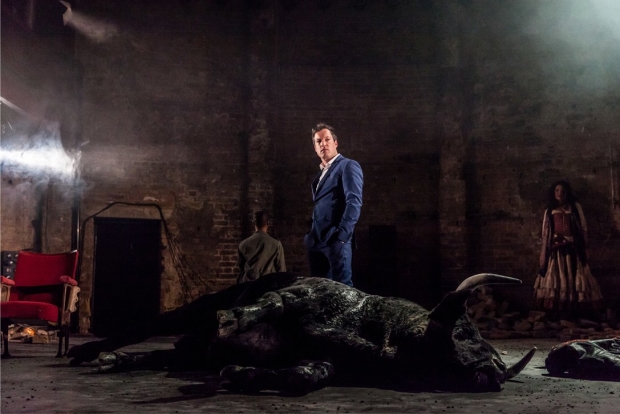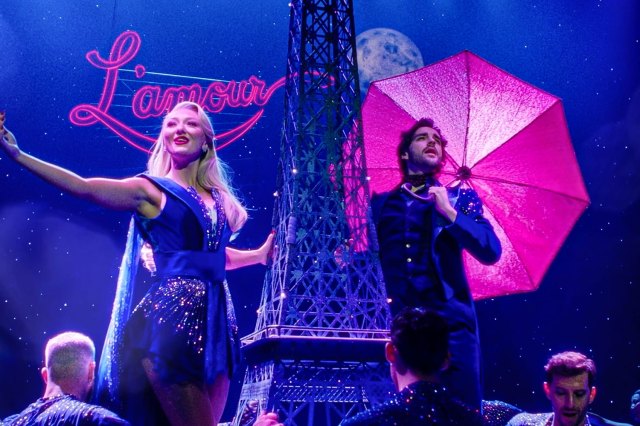Matt Trueman: 'Classics no longer guarantee box office success'
New data shows that revivals of familiar works aren’t a safe bet for theatres

© Marc Brenner
It's particularly persistent in regional theatre, where audiences are deemed less adventurous – though, in reality, they're just less numerous. London theatre can afford to cater for niche tastes. It has a population of eight million. Filling a 1,000-seater in a city of 750,000 necessitates a wider appeal. Well known plays can do just that and, in tough economic times, they seem to make a lot of sense.
It's time we chucked this idea out for the specious rubbish it is; a hangover from the days of regional rep, when theatres needed a new show every week and so turned to their bookshelves. Classics no longer guarantee box office success. Relying on them to shore up the figures is a recipe for disaster – in both the short and the long term.
At the British Theatre Conference this weekend, Elisabeth Newman, the incoming artistic director at Bolton Octagon, explained that its recent productions of Private Lives and Journey's End, both programmed as safe bets, hadn't pulled in the crowds as expected. (In the next breath, she also mentioned that, despite Bolton's higher than average BAME population, the theatre's audience was still predominantly white. With Private Lives and Journey's End on offer? Surely not…)
By contrast, Suzanne Bell of Manchester Royal Exchange said that its audiences had increased by 33% in the last three years, thanks to an increasingly contemporary programme. What's more, its new work regularly pulls in bigger audiences than its classics. Joe Sumison of the Dukes in Lancaster, a venue that incurred a 50% cut in its Arts Council funding in 2010, explained his choice to stop programming classics. The result? A 60,000 rise in annual audiences since 2008.
'Hitting 60 doesn't mean picking up a penchant for doilies and chintz'
According to a new report, that pattern repeats across the board. Of the 1,771 productions across the UK in 2013, new plays accounted for 38%, revivals for 22%. What's really interesting is that, when one compares the two, new work brings in higher attendances and bigger box office takings. It accounts for 59% of productions, but draws 63% of audiences and 66% of box office. It is, in other words, the safer bet overall – even if it looks the riskier one.
Why do we still think of classics as safe bets? There's the syllabus factor, of course, which comes with problems of its own. Otherwise, I suspect they seem to appeal to older audiences, who are more prone to theatregoing. (Though recent research has challenged that notion too.) Leaving aside the circularity of the argument – programme for older audiences and you won't attract young ones – it's based on a fundamental misconception. Tastes change, true, and it takes time to realise the joys of Radio Four, but we don't suddenly morph into little old people with little old people tastes. Hitting 60 doesn't mean picking up a penchant for doilies and chintz. Today's pensioners drove the Summer of Love. They were Beatlemaniacs. They were Mods and Rockers. Don't tell me they want to see Noel Coward plays on repeat.
If a regional theatre wants to pull in an audience, it has to appeal to them – in both senses of the word. As I wrote last week, theatre is one entertainment option among many. It has to do more than television and film. It has to speak to its audience directly. It has to matter to people and it has to invite them in. "We're essentially interested in making original work that speaks to our area," Sumison said on Saturday. He couldn't be more right. A theatre exists in its community. It has to play a role in that – and that role can't just be providing people an opportunity to see the classics. That's programming based on an 'ought'. It guilt trips people into attending.
I'm not saying that classics should be off-limits – of course not. Great plays belong on the stage as well as the page. They needn't be artistically safe, either, and artists are increasingly turning them inside out.
However, it's not enough to rely on name recognition alone; to expect a title to do all the work and keep audiences up. Theatres need to give us a reason to come and, perversely, programming safely is the riskiest thing they can do.












